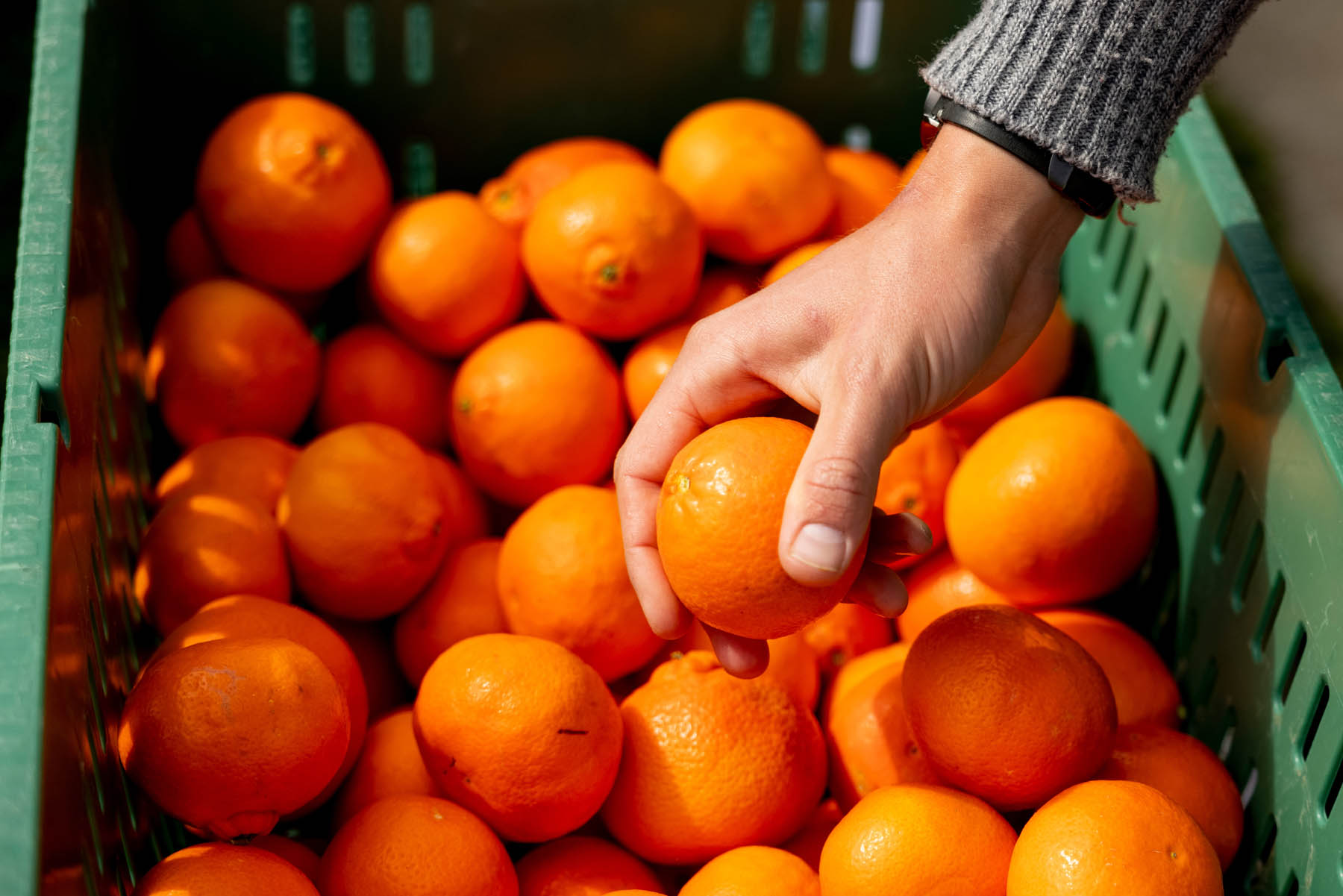
A Collective Effort
Story by Anna Zigmond
Photography by Ruby Wallau
What started in 2016 as a group of passionate and dedicated friends at Cal Poly with a small but mighty mission to advance sustainable farming practices has been carried on over the years by the next like-minded generation of students. The Real Food Collaborative (RFC) is now spearheaded by second-year student Katie Kelly and fellow RFC members with a shared mission to advocate for and create a food community within Cal Poly and surrounding San Luis Obispo areas.
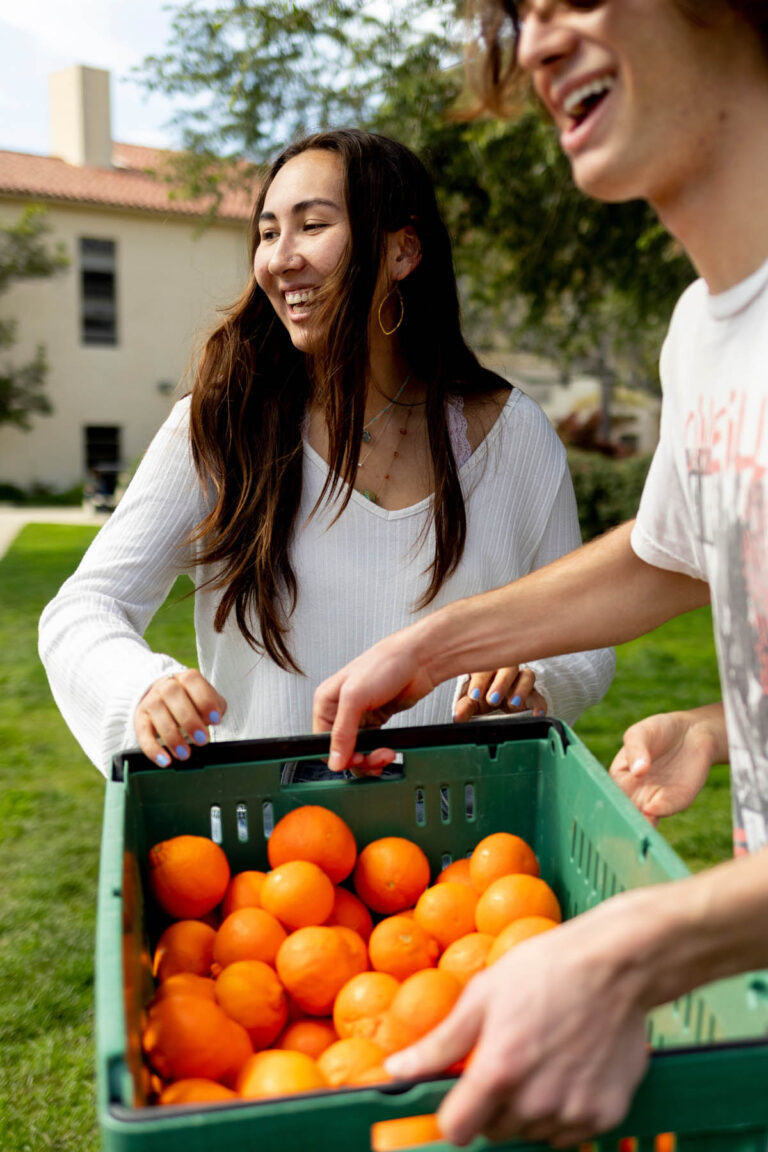
“Our goal is to cultivate relationships and help each other create healthier and more sustainable lives around food,” says Katie. Now in its seventh year, RFC continues working to reconnect students and San Luis Obispo locals to the agriculture that surrounds them. With a rate of food insecurity that has more than doubled since 2020, RFC’s efforts are essential.
In partnership with Cal Poly’s 9-acre farm, RFC distributes produce from the farm to students through various events and programs. Partnerships with congenial organizations and clubs, like Front Porch SLO and Garden Club, help RFC provide free community dinners and food education to students and locals around campus. RFC also hosts biweekly potlucks where guests are encouraged to bring a dish to share, along with reusable utensils.
One of RFC’s core initiatives is its CSA farm box subscription, which enables students to purchase a collection of local produce gathered from both the Cal Poly Organic Farm and Cal Poly Orchard.
“We profit about $5 per box after costs, and all that money goes back into our work,” says Katie. “From years of doing these subscription veggie boxes, we are able to continue purchasing produce from the farm, cooking community meals and purchasing ingredients for the potlucks. We rely on the club’s funds to make these initiatives happen.” At $25 per box or $80 per quarter for a biweekly pick-up, students can invest in locally grown and ethically sourced produce. RFC works to ensure the community has access to real food, regardless of ability to pay for the subscription.
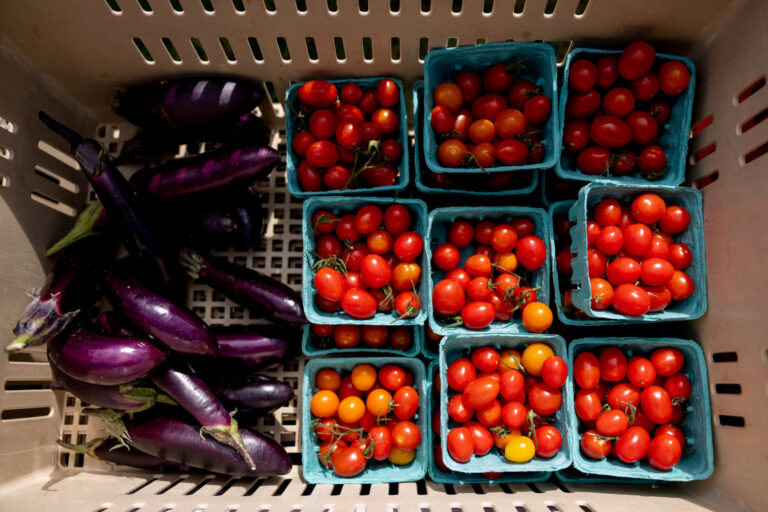
“We donate food we purchase from the farm to the Cal Poly food pantry every week, so students who can’t subscribe have access to good food. We also donate to the SLO Food Bank and plan on doing more work with CalFresh,” says Katie.
The group’s vision for the future looks beyond its current Cal Poly hub, with a goal of targeting the larger food systems in SLO County. “We want to incorporate what we’re doing and learning through RFC out into the community,” she says. “We think about, ‘What ways can we continue to support local, sustainable farmers?’”
The group recently organized volunteer workdays on local farms like Firstfruits Farm SLO. Firstfruits is a nonprofit, faith-based and entirely volunteer-run organic farm with a structure that focuses on food insecurity and nourishing the earth and nearby communities. The farm gives away its harvest directly to local food banks and distribution partners.
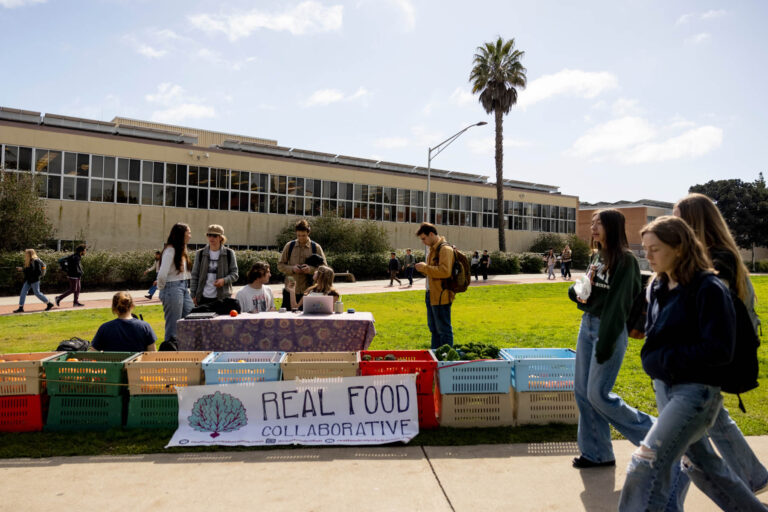
“We rely on our in-kind partners, community partnerships and volunteers, like these student groups, to continue our work,” says Paul Shackelford, Executive Director of Firstfruits. Volunteers come to the farm for workdays to assist with harvesting, planting new seedlings, working in the garden and other miscellaneous and necessary farm projects. Also, 20 percent of Firstfruits’ seedlings come from the Cal Poly greenhouse. Last year, Firstfruits harvested 18,510 pounds of produce, which was distributed to food banks, schools, shelters and other programs that help feed our communities.
“We’re kind of a here and now,” says Paul. “We host planting events twice a week, which are critical for the farm and wouldn’t be possible without the dedication of our volunteers.”
Building stronger relationships between farmers and consumers is a pillar of Firstfruits and RFC’s mission as organizations. It’s no question that to successfully create ethical, equitable and healthy food systems, both consumers and farmers must work together.
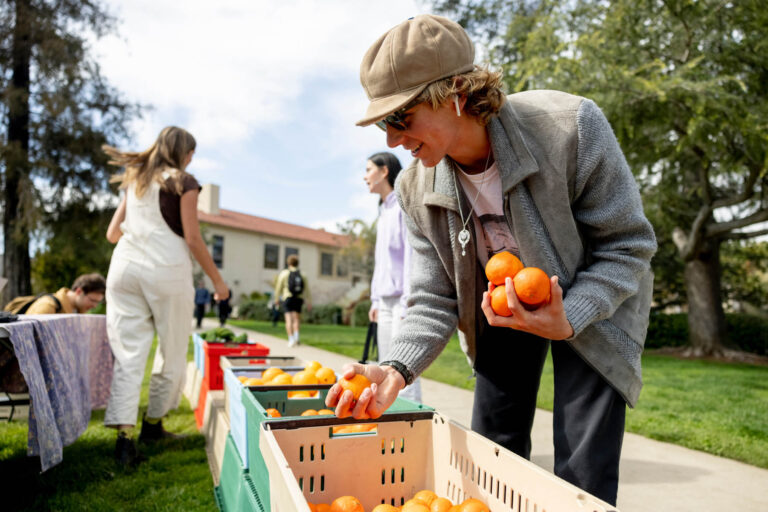
“What these students are doing on a micro-level is pretty amazing, and I’d like to see more of the general population understanding the diversity of places their food comes from and how we’re collectively working to connect people back to their food,” shares Paul. “When groups visit the farm, they see what we’re doing on a small scale and get a better idea of where food comes from, or what a tomato tastes like right off the vine, for example. But my fear is they’ll walk away thinking the rest of the agriculture system looks just like that.”
Both organizations emphasize the importance of educating consumers on ways to connect with the farmers within their communities, whether through conversations, purchasing power or volunteerism. “It’s important to be aware of sustainable alternatives to pesticides and how to support growers using ethical practices,” Max Eatchel, an RFC member, says. “Whether you go to a local farmers’ market or buy from independent farmers, it helps.”
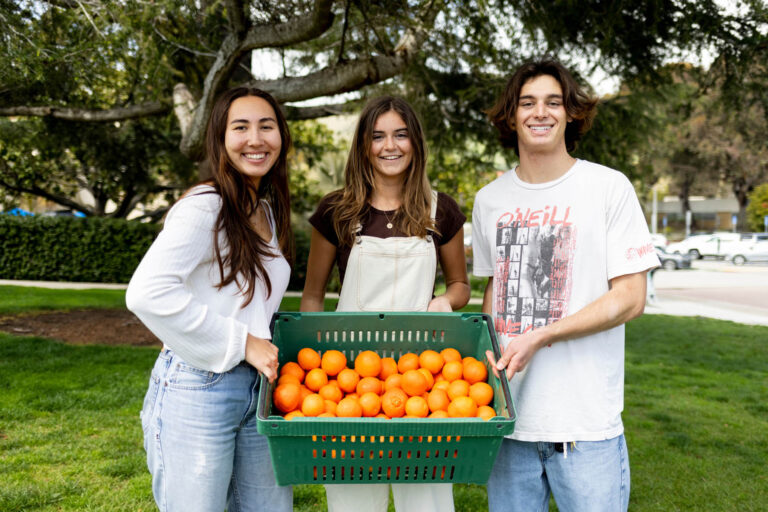
From thriving ecosystems to keeping people safe from harmful chemicals and exploitative labor, the benefits of supporting and creating sustainable agriculture are proven. But as Katie puts it, real change demands real efforts.
“I was inspired by my older peers and I hope to do the same for younger kids,” Katie shares. “A lot of people say they care about climate justice, and agriculture is one of the most important factors in fighting climate change. If people are more aware of their consumption, paying attention to where their food is coming from, and who is behind it, we can create more sustainable agriculture systems.”

